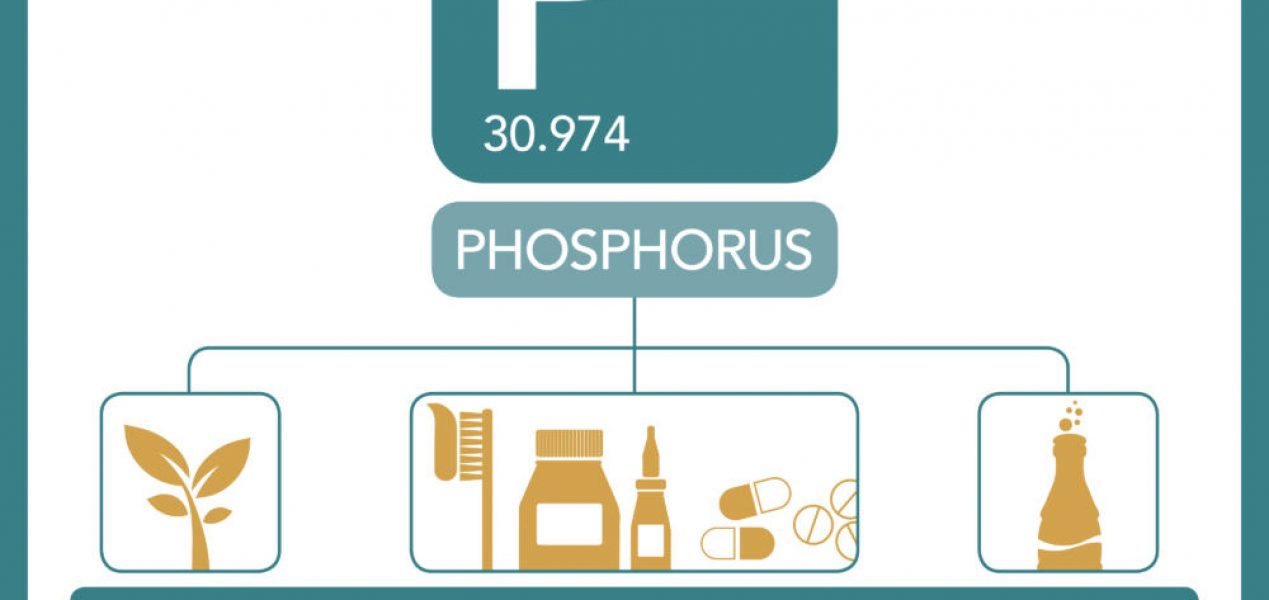Light-bearer. That’s the meaning of the word phosphorus (P), the latest chemical element to be highlighted in this series of articles commemorating the 150th anniversary of the creation of the periodic table. Its name is no coincidence. It is a highly reactive element that spontaneously oxidises when exposed to atmospheric oxygen, producing a glow. In its honour, substances that glow in the dark without emitting any heat are described as ‘phosphorescent’.
Phosphorus compounds are involved in the vital functions of living organisms (phosphorus is estimated to make up 1% of human body weight), leading it to be considered an essential chemical element. It has also become essential to industry, with its main application being its use in fertilisers: almost three fourths parts of all phosphorus (in all its chemical forms) are used in the United States as fertilisers.
Another important application of phosphorus is as a nutrient in food products, though it is also used as a cleaning agent to soften water, or in coatings for metal surfaces. This element can also be found in such varied products as detergents, safety matches, toothpaste, pesticides, plastics, pyrotechnics, matches, or lamps. “It has become absolutely essential to global industry and is hard to replace, particularly as a fertiliser”, explains Laura Mosquera, Product Manager for Grupo Barcelonesa.
According to Mosquera, “the most significant commercial compounds are phosphoric acid and its salts, also called phosphates”. Barcelonesa sells phosphoric acid in various concentrations, which is used as an ingredient in beverages (such as Coca-Cola), and in the treatment of metal surfaces (our products BD ELECTRODAL and BD BRIAL, as well as DECAP NP-1, are acid blends for brightening aluminium or stainless steel), while phosphates are employed as water softeners, food texturing agents, and fertilizers. Grupo Barcelonesa also offers polyphosphoric acid within its product portfolio. It is used as an SPA catalyst (Solid Phosphoric Acid) in the production of cumene.
With regards to phosphates or salts, Barcelonesa offers the four existing types: sodium, calcium, ammonium, and potassium. Sodium phosphates are mostly used in the food industry, but are also employed in certain pharmaceutical products or in cleaning products. Calcium phosphates are mainly used in food products. The main use for ammonium phosphates is as crop fertilisers. Lastly, potassium phosphates are used as food additives, though they are also used as fertilisers and for pharmaceutical applications.
The majority of the phosphorus required for all these uses comes from apatite, a mineral included in the group of phosphate rocks. Significant apatite sources are found in multiple countries around the globe, including Morocco, Russia, and the United States.




